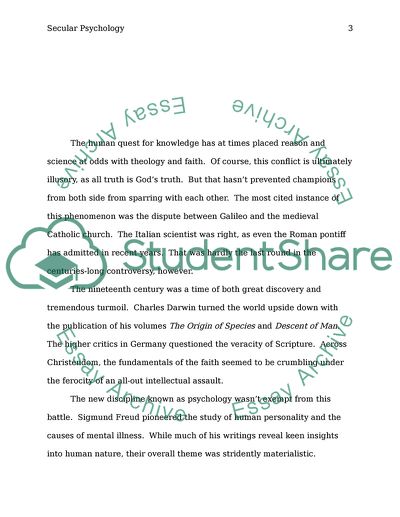Cite this document
(Psychology as the Enemy of Christian Faith Case Study, n.d.)
Psychology as the Enemy of Christian Faith Case Study. Retrieved from https://studentshare.org/psychology/1581103-create-a-counseling-theory-that-is-compatible-with-a-christian-worldview
Psychology as the Enemy of Christian Faith Case Study. Retrieved from https://studentshare.org/psychology/1581103-create-a-counseling-theory-that-is-compatible-with-a-christian-worldview
(Psychology As the Enemy of Christian Faith Case Study)
Psychology As the Enemy of Christian Faith Case Study. https://studentshare.org/psychology/1581103-create-a-counseling-theory-that-is-compatible-with-a-christian-worldview.
Psychology As the Enemy of Christian Faith Case Study. https://studentshare.org/psychology/1581103-create-a-counseling-theory-that-is-compatible-with-a-christian-worldview.
“Psychology As the Enemy of Christian Faith Case Study”. https://studentshare.org/psychology/1581103-create-a-counseling-theory-that-is-compatible-with-a-christian-worldview.


